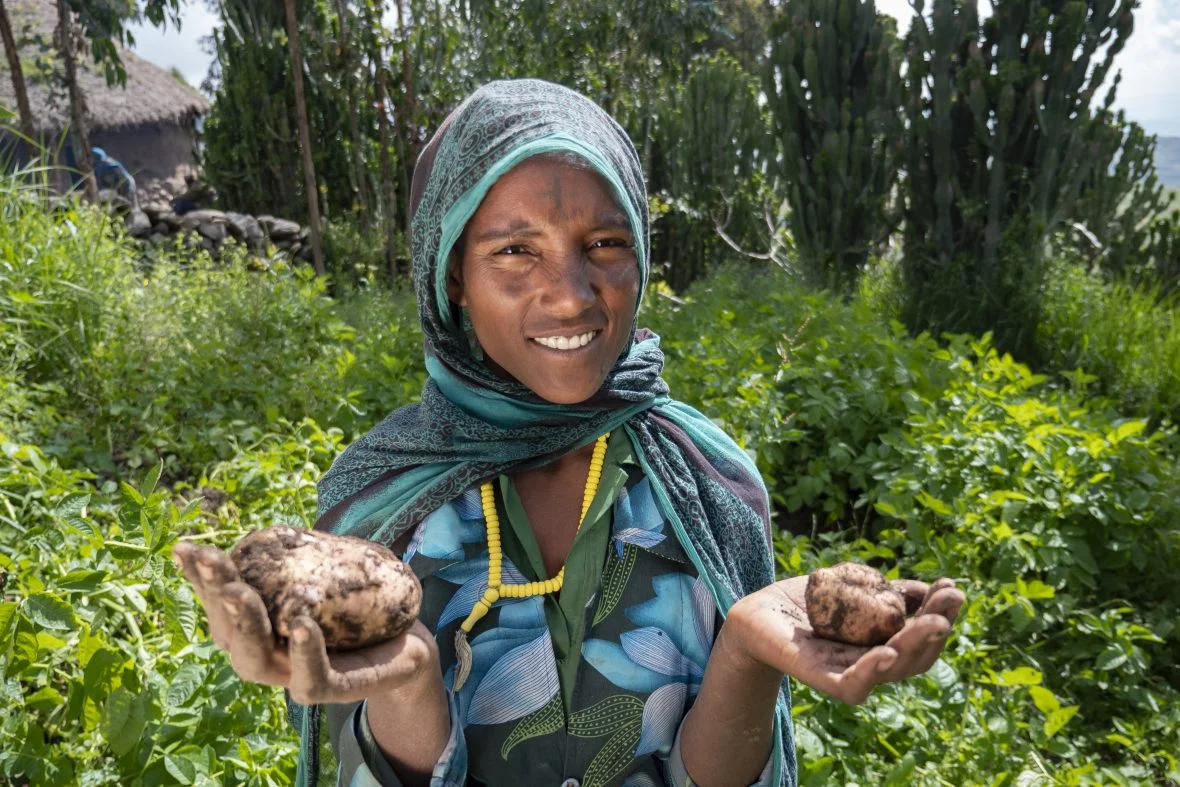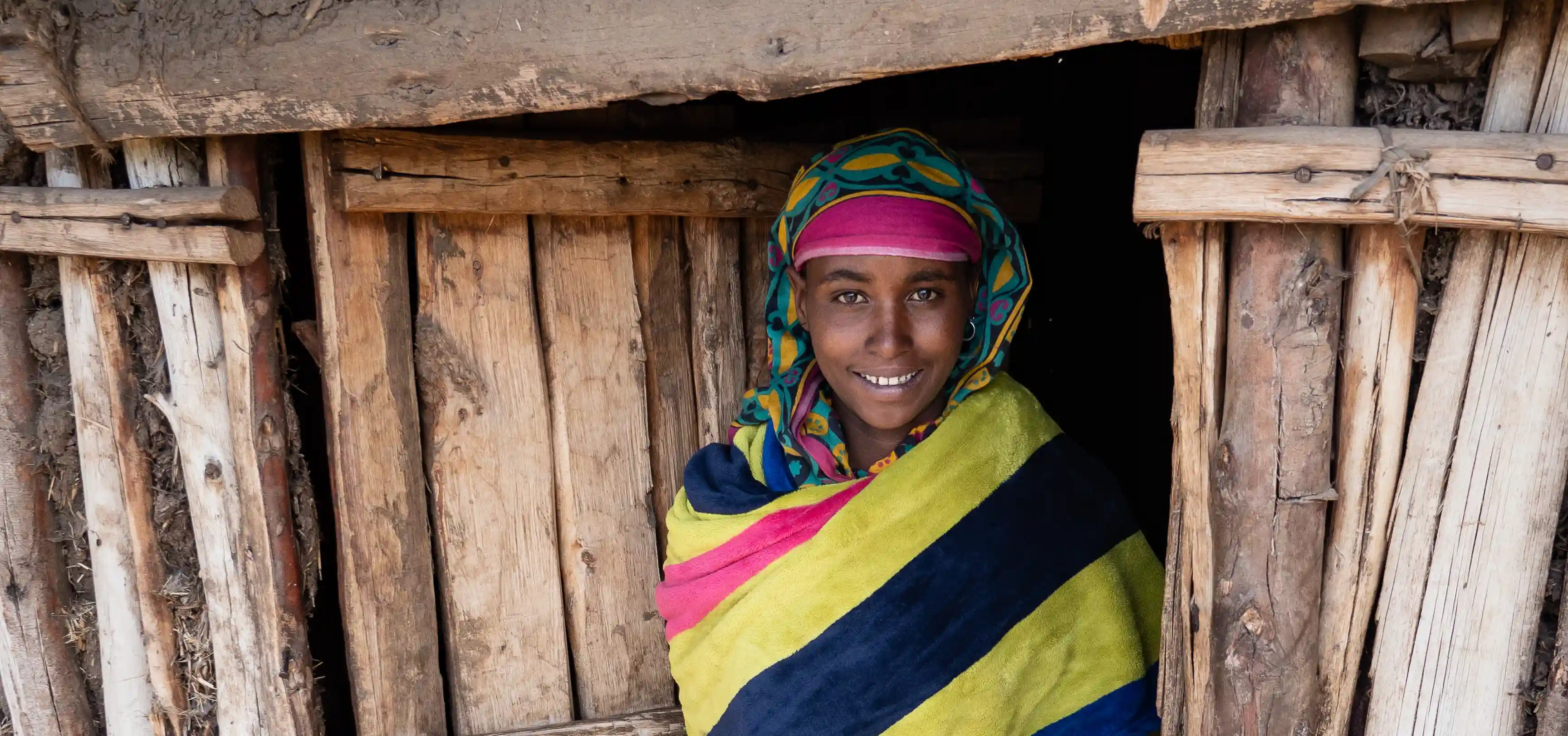Helping people lift themselves out of poverty is almost never a dramatic process. It takes time and commitment, and often the results don’t seem very impressive. But, done properly, it can be seriously life-changing in a real and lasting way.
Rural poverty in Ethiopia is a serious problem
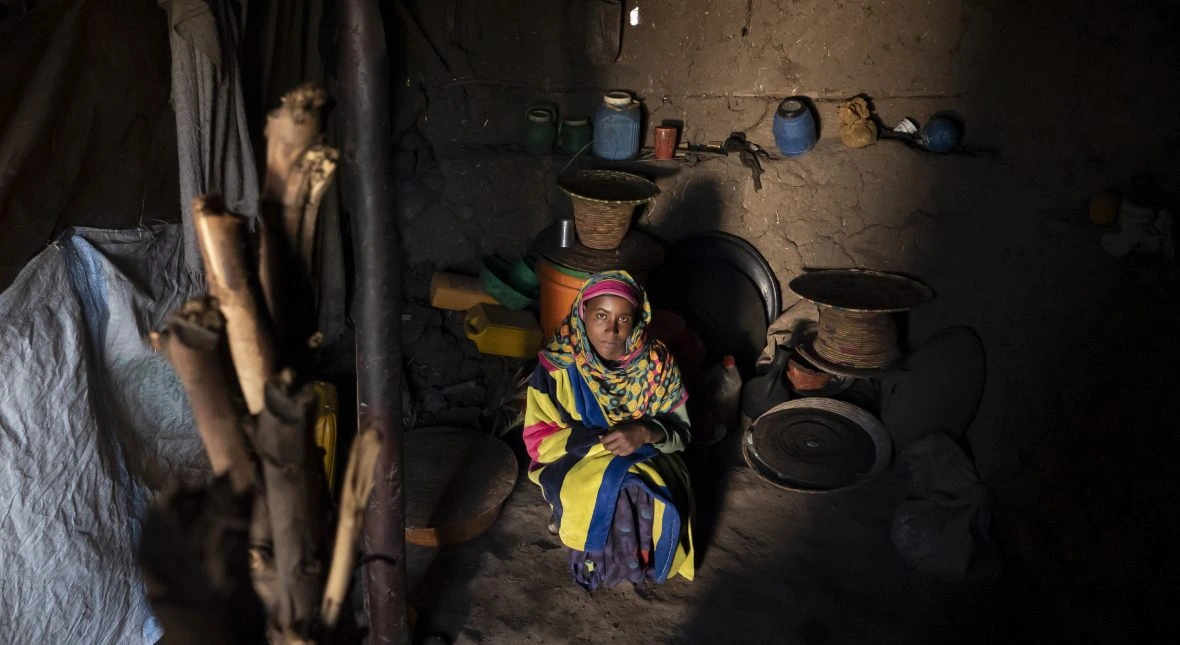
“We had nothing — no land, no animals, no money… nothing at all.” 22 year-old Workitt Kassaw Ali describes a scenario facing many young families in rural Ethiopa. Here in the highlands of Amhara, there simply isn’t enough land to go around and, without land, your options for making an income and feeding your family are extremely limited. It’s a classic example of rural poverty in Ethiopia, an issue that is challenging a whole new generation.
“We had to rely on handouts from the government.”
Workitt and her husband, Ketamaw, lived with his parents for the first years of their marriage, planting barley on a tiny plot of borrowed land. “It didn’t even provide enough food for 6 months,” Ketamaw says. “We had to rely on handouts from the government.” Over time the couple managed to build a small, basic house from wood, mud, and thatch.
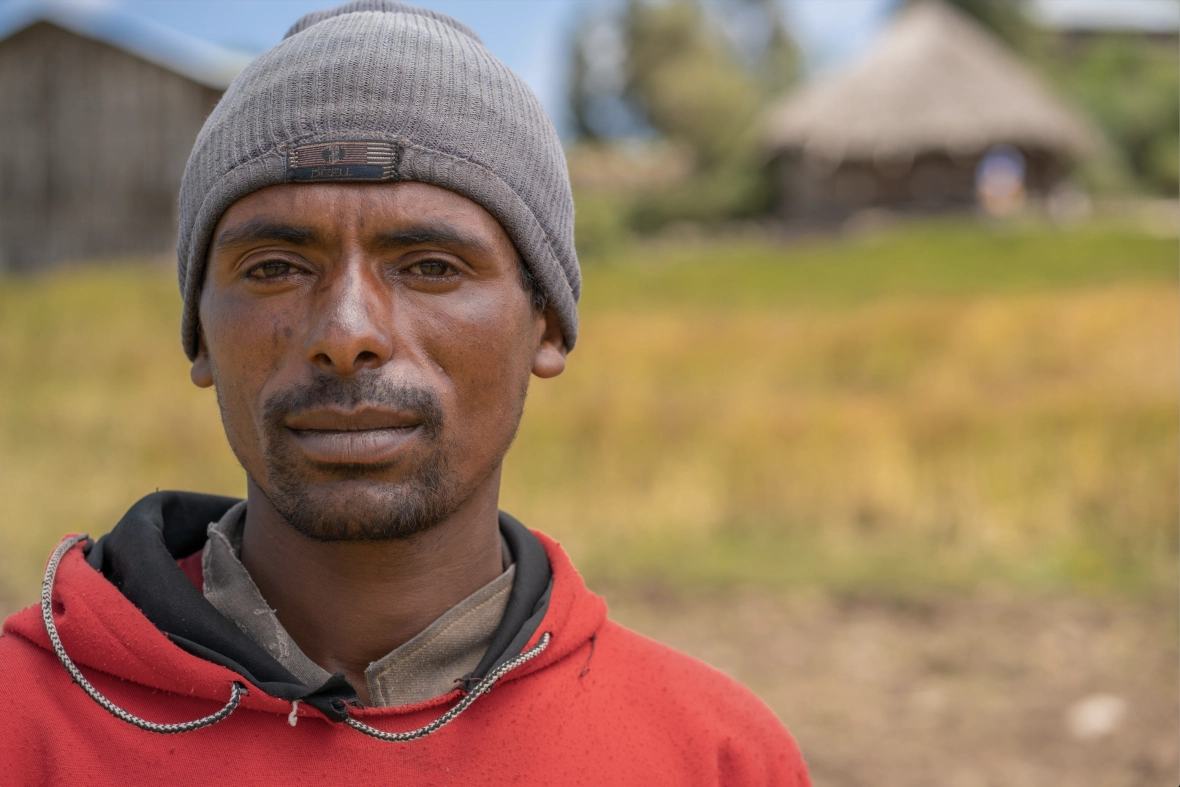
Concern has employed the “Graduation” model of poverty reduction in various countries to great effect, and in 2017 introduced it to the Dessie district of Amhara (a hot-spot of poverty in Ethiopia) under the title REGRADE. For the record, that stands for Resilience (RE) + graduation program (GRAD) + evidence (E). Partnering with the Ethiopian government and local communities, the country team drew up a list of the most vulnerable families and set to work. Workitt and Ketamaw were on the list.
"You help relieve the pressure of day-to-day survival."
“We got a lot of training and some cash payments to help us get by while we were taking part,” Workitt explains. “Then we got a grant and a loan through our local SACCO (savings and credit cooperative) and used it to buy 3 ewes for breeding.” (For the uninitiated, a ewe is a lady sheep.) Concern brought in a high quality ram from the nearby agricultural research station to do his bit in producing sturdy hybrid lambs. Within a year the couple had 11 sheep, which they could then sell for income. Then they acquired an ox, which Ketamaw could use for ploughing his own plot and those of other local farmers, in exchange for money, grain, or seeds. Soon, the couple were able to start saving regularly with the cooperative.
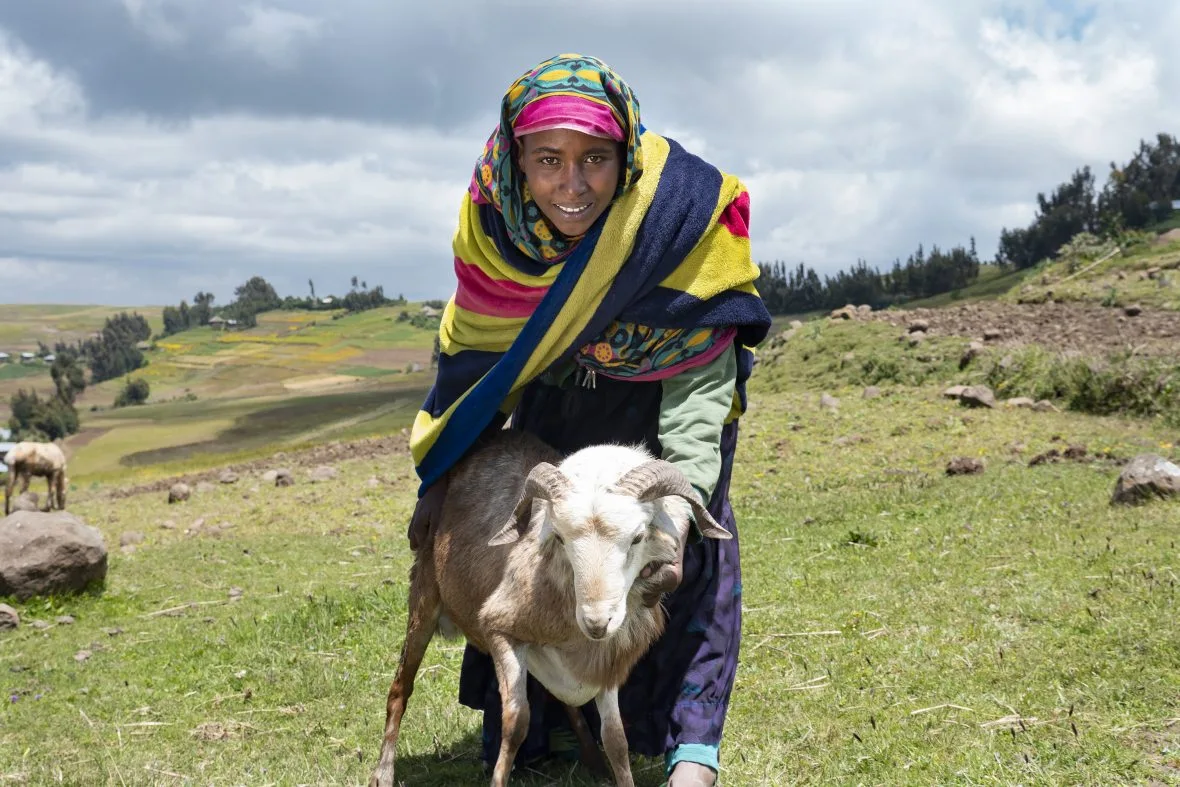
“It’s all about helping people build up their assets and putting them on a financially sound footing,” explains Endris Feyessa of Concern. “You help relieve the pressure of day-to-day survival, and work with them on a plan to develop a sustainable income.”
Dealing with setbacks
Then, in April of 2018, tragedy struck. Workitt, who had become pregnant with twins, suffered complications and lost both babies. Worse still, she required surgery to recover. The couple took the decision to sell the ox and used that money to pay the hospital bills — something they would not have previously been able to afford. “I think it saved my life,” she says. With the remaining money, they decided to buy materials for a new, bigger house, with a tin roof. Currently they share their space with the animals at night, to keep them safe from predators.
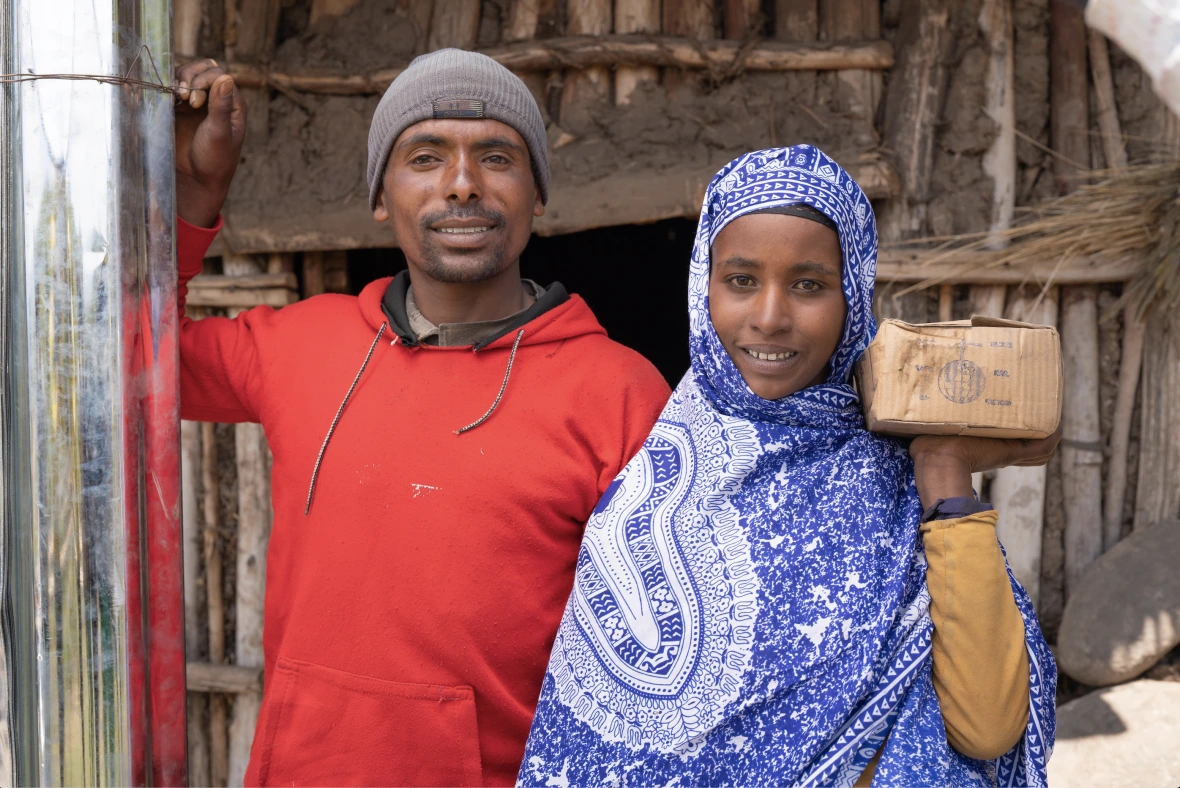
“Having that financial cushion helped them to recover from what otherwise would have been a terrible blow, which would have left them in an even worse situation,” according to Concern’s Feyassa. “That’s the beauty of this whole thing.”
"I don’t want my children to grow up poor like me”
Workitt and Ketamaw still plan to have a family, once their new home is finished. “Two children is enough — that is what we can afford,” she says. “I grew up in poverty. My mother was widowed when we were young and there were six children. None of us went to school and we were always hungry. I don’t want my children to grow up poor like me.”
Meanwhile, the couple continue to breed and fatten lambs, and plan to buy another ox, when they have enough money saved. Ketamaw supplements the family income with occasional labor, and Workitt grows vegetables and raises chickens, also supplied as part of the program. To an outsider it might not seem like much, but to this young couple it is nothing short of transformational. We believe it's one of the keys to tackling poverty in Ethiopia.
Beginning their journey out of poverty
Not far away, in Gobey village, another couple are just embarking on their own journey of transformation. Mohammed and Merema have one son and live in a run-down “tukel”, a traditional thatched house. With no livestock and a half a hectare of poor quality mountain land, their situation is familiar.
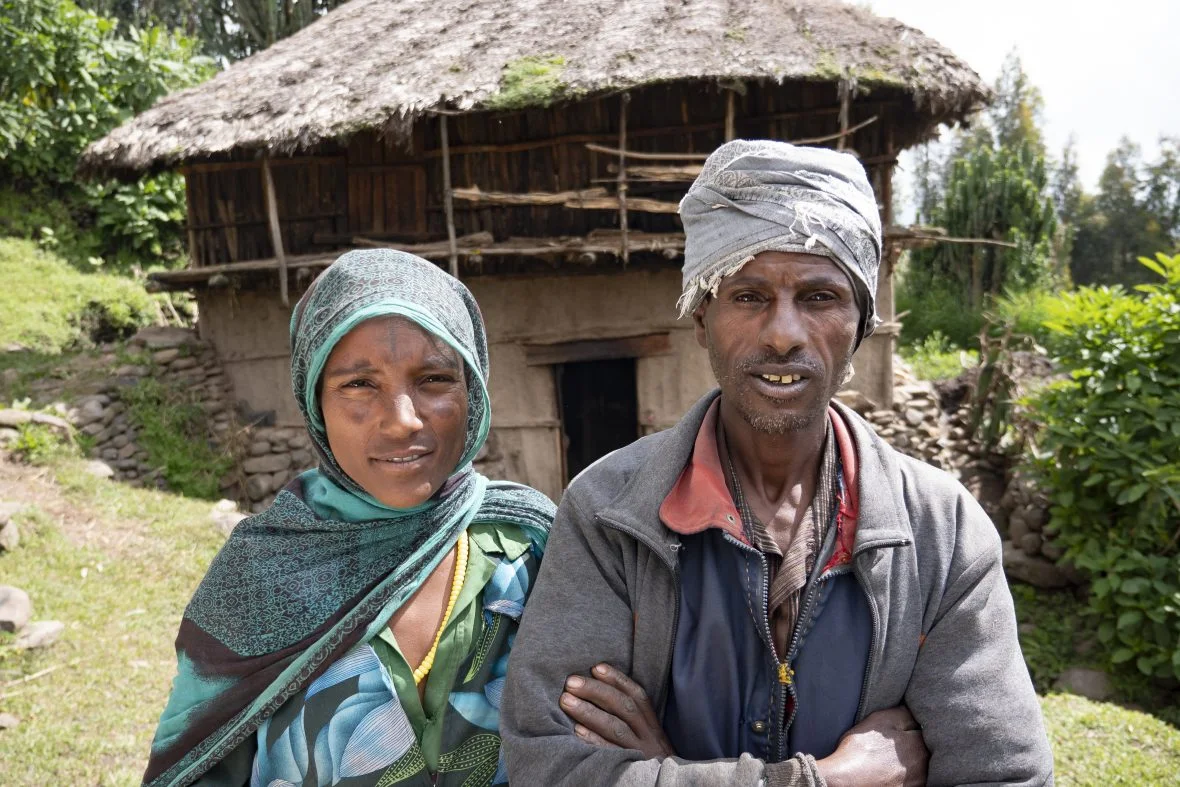
Merema has tried her best to improve their lot, with the limited resources available, and is particularly proud of her kitchen garden, where she grows a variety of vegetables and some Irish potatoes. But it's a real struggle to make ends meet.
“I don’t want to be poor anymore"
The couple have been nominated by their community to take part in Concern's "REGRADE" program.
Mohammed has modest expectations of what they might achieve with Concern’s help — some new animals and a chance to upgrade the family home. But, having seen the success of other families, Merema has higher ambitions. “I want to build a new house closer to the town, and open a shop or maybe a restaurant. I want us to dress differently and I want us to think differently.”
All of this is delivered with a look of steely determination that defies any doubt Merema can achieve her goals. “I don’t want to be poor anymore,” she declares.
